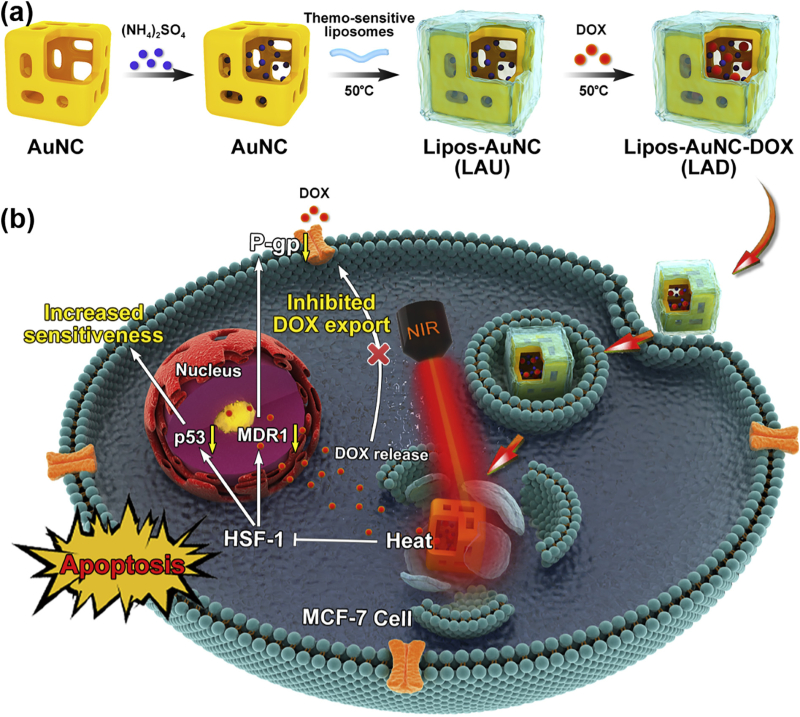Researchers Develop Smart Gold Nanocages to Break Chemoresistance
Date:03-06-2020 | 【Print】 【close】
Chemotherapeutic drug is the cornerstone in the treatment of numerous malignancies. However, the present chemotherapy is still far from being satisfactory mainly owing to the severe side effects of the chemotherapeutic agents and drug resistance of cancer cells.
Thus, reversing drug resistance by constructing an ideal chemotherapeutic strategy is greatly needed.
In order to tackle this problem, researchers from the Shenzhen Institutes of Advanced Technology (SIAT) of the Chinese Academy of Sciences developed a smart nanosystem with enhanced curative efficacy and lower side effect. The study was published in Journal of Controlled Release.
This smart nanosystem of thermo-sensitive liposome coated gold nanocages (LAD) with doxorubicin (DOX) loading for near-infrared (NIR)-triggered drug release and chemo-photothermal combination therapy of breast cancer.
The biocompatible liposomes coating facilitated the cellular uptake of LAD and meanwhile avoided drug leakage during the circulation. More importantly, LAD exhibited controllable photothermal conversion property and produced mild heat under NIR irradiation, which not only triggered DOX release and transferred DOX from lysosome to nucleus, but also elicited the mild heat cell killing effect to improve the curative efficiency.
Further mechanism study revealed that mild heat could reverse drug resistance by down-regulation of the chemoresistance-related markers (e.g., HSF-1, p53, P-gp), and inhibited DOX export and increased drug sensitiveness, thereby prominently increased the anticancer efficiency.
Hence, this smart and versatile LAD nanoplatform is promising to be applied in the field of drug controlled release and chemo-photothermal combination therapy.

Illustration shows thermo-sensitive liposome coated gold nanocages with DOX loading (LAD) for photothermally triggered drug release and breaking chemoresistance. (Image by SIAT)
Media Contact:
ZHANG Xiaomin
Email: xm.zhang@siat.ac.cn